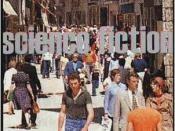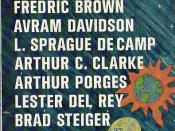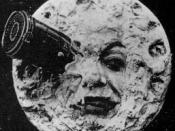How does Science fiction reflect the current political, social, technological and economical issues of the world?
Science fiction is a film genre that most people consider as mere escapist fantasy but very often the opposite is the truth. Science fiction is quite complex. It uses a lot of codes and conventions that are metaphors for current events of those times. In many cases it mirrors political, social, technological or even environmental issues.
Science fiction started very early on in the end of the nineteenth century with the Lumiere brothers and Zecca. The first films were short, lasted only a couple of minutes and made fun of the new technologies - electricity, x-rays, cars etc. [Hardy, ] The foundations of the genre as such, were laid down by Melies. Unlike the films before him (Les Rayons Roentgen, Charcuterie Mechanique), Melies' Le Voyage dans la Lune was a breakthrough in cinematography.
In this film Melies gave the foundation of space travel. After a while people started to make films in which they measured the 'impossibilities' they wanted to make possible [Hardy, ] After the first underwater submarine journey in 1904 technological advances started to be taken more seriously and the short science fiction films reflected that. The most obvious is the eighteen minute long Twenty Thousand Leagues Under the Sea from 1905.
Since as early as 1909 films started to deal with political issues. The fears of the upcoming war mirrored in science fiction. Stormont's England Invaded depicted the fear of an invasion from a European power - France, Germany or even Russia. [Hardy, ] A direct warning of a foreign invasion was depicted in the film England's Menace released just two months before the beginning of World War I.
War anxiety and the fear of it remained one...


